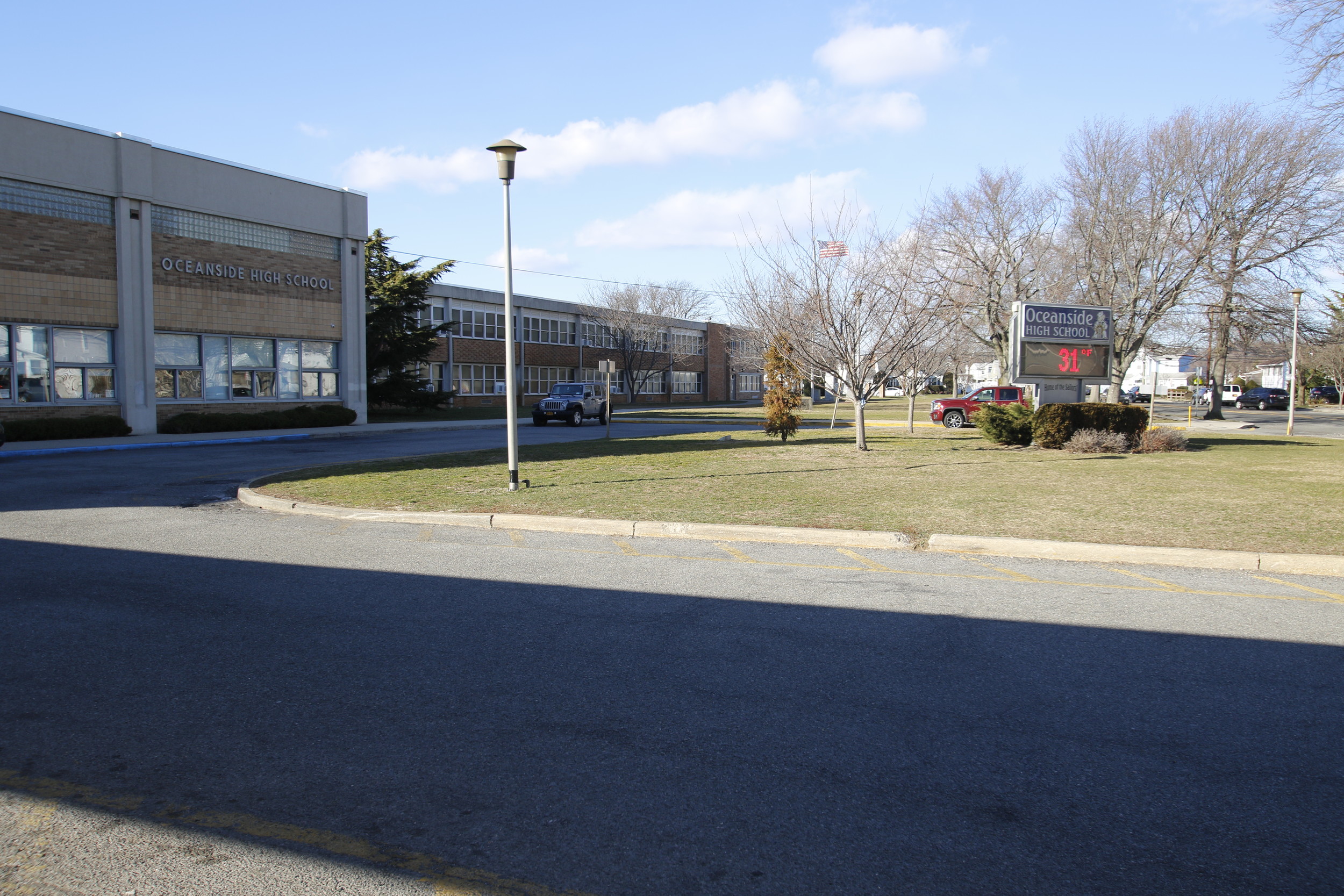O’side students discuss increase in racial ‘jokes’ at library forum
“We’re not allowed to talk about politics in school,” a 16-year-old Oceanside High School student said, claiming that the policy extended into government classes.
“You’re not allowed to talk about politics?” a 14-year-old fellow student shot back incredulously.
“Why do you think that is?” asked Dr. Maggie Gray, an associate professor of political science at Adelphi University who came to the Oceanside Library on May 10 to give a comparative analysis of President Donald Trump’s first 100 days in office.
“It depends on the teacher and the excuse they give you,” the 16-year-old replied.
“I think they don’t want volatile conversations,” a 15-year-old said, mulling the question of whether this was a new phenomenon.
But political conversations are allowed in the classroom, according to Schools Superintendent Dr. Phyllis Harrington. “We take on controversial topics within a safe space in order to give students the tools and capacities to become informed citizens,” she said.
Turnout for the presentation was lower than expected, so the three teenagers, whom the Herald has chosen not to identify, sat down with Gray — seminar style — for a candid, but analytical discussion that revealed as much about the toxic political atmosphere today’s teenagers confront as it did about the traditional 100-day benchmark that all modern presidents face.
The conversation covered a wide range of topics, including Franklin Roosevelt’s first 100 days, Supreme Court nominations and the outlets from which people get news. But it was the students’ remarks that showed the chilling effect that an acrimonious year-long campaign and cascade of presidential controversies has had on political discourse at the high school and college level, as well as an uncertainty over what words and attitudes are appropriate in social settings, both in and out of the classroom.
“Usually there are some pretty exciting conversations around a presidential election,” Gray said of her observations at Adelphi. “But this year it just wasn’t there.”
She noted that Trump supporters in particular, as well as rank-and-file Republicans, have remained quiet. Tony Iovino, the library’s supervisor of community services, who attended the event, commented that he was disappointed in the treatment traditional Republicans like him have received in recent months, with accusations of Nazism thrown their way.
“Growing up in Massapequa,” Iovino said, “the rules were, you never, ever compared anything to Hitler or the Nazis, because it demeaned the memory of what had happened.”
But the teenagers spoke of a school environment in which racial jokes directed at Hispanic students were becoming more common, and where — following the election — students felt emboldened to single out minority students for mockery.
“Yes,” said the 16-year-old, who is Hispanic. “Especially in our high school in Oceanside, the group of Hispanics have a hard time now, with people asking, ‘Oh, you’re not gone yet? I thought you were supposed to be deported.’”
She noted that racial comments have been directed at her family on social media. “It’s not funny, it’s serious!” she said, though she acknowledged uncertainty over whether this was simply a typical teenage tendency to make light of serious topics.
Oceanside school officials said they were unaware of such behavior. “We have had no reports of incidents like those described in the Herald’s inquiry,” Harrington said in a statement.
“Our schools are safe and secure, not only for learning, but for students to grow socially and emotionally,” she added. “We have many programs that foster social-emotional learning and promote kindness, caring and inclusivity. We also have trained teachers and support personnel who are readily available to handle any problems that students may be facing.”
Board of Education Vice President Sandie Schoell told the Herald that the district condemns the kind of behavior that the high-schoolers described, and called on students to immediately report any comments that make them feel uncomfortable. “We have a no-tolerance policy, but it has to be brought to our attention,” she said.
“[Faculty] would not shovel this under the rug,” Schoell continued. “If somebody is harassing you, you have to immediately go to an adult in the building.”
Throughout the conversation, there was tension and uncertainty over whether the racial jokes meant something beyond typical teenage talk. “We see on TV shows, such as ‘Key & Peele,’” racial jokes,” the 14-year-old said, responding to the 16-year-old’s anecdote. The other student asked: “If you listen to the jokes too often do people start believing them?”

 39.0°,
Fair
39.0°,
Fair 




